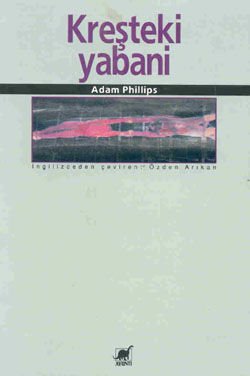
Wild in the Nursery
We come into the world crying. Growing up is a process of disappointment; Still, we want to grow up as soon as possible, and after we grow up, we miss the joy of life in our childhood... Because a child is a "creature of pleasure" who asks questions, investigates, wonders, plays games; However, as he grows up, his desires dull, his interests decrease, and he turns into an adult who knows how to be content. It is obvious from the child's questions and games that his interest and curiosity is especially about sexuality. Children want to know about sexuality, while adults seek to teach something else, culture. Psychoanalysis almost idealizes the unconscious, instinct, and the child by opposing them to culture. If it is assumed that desires direct the child towards the future, growth can be thought of as the reduction and narrowing of pleasures. This means that as the child grows up, he will always give up something. While the nursery-age child participates in culture and therefore in the language that carries culture in the name of socialization, it seems that he has to give up something that he would never want to give up; This is his expressionless self, his pre-linguistic self... While the "Oedipal child" embarks on his own sexual research, there is a life without words, full of passion. What psychoanalysis will reveal is the conflict and cooperation between this situation in which there is no verbal communication and the ability to use language. Because while learning to speak, we can also keep our non-speaking side alive. If we do not define development solely as the acquisition of linguistic skills, we can better nurture the exchange between expressive and non-expressive selves in childhood. In this book, Adam Phillips, who according to some is "one of the greatest contemporary psychoanalytic thinkers", describes the never-ending conflict between the wild and the educated child, the dreamer and the scientist, that goes on inside all of us. It aims to create a solid, broad interest in life by exploring the possibilities of feeding and multiplying together, without choosing any side of this conflict. Phillips' umbilical cord with Freud is in place, but his ideas and perceptions are dazzling... The best book ever written. -Carmen Callil, Daily Telegraph-Philips enthusiastically welcomes the pleasure and appetite that come with birth, breaking away from the familiar Freudian reductionism that declares love, art, humor and other sources of joy to be nothing more than covers for something sad and vile.-Sunday Telegraph-We bring us to ourselves, It draws you to the unexpected and the deep. It transforms distress and shame into respectable, caring situations; It gives our crankiness a satisfying kind of nobility. -Nicci Gerrard, Observer-
Number of Pages: 126
Year of Printing: 2000
Language: Turkish
Publisher: Details Publications
First Print Year: 2000
Language Turkish
| Publisher | : | Details Publications |
| Number of pages | : | 126 |
| ISBN | : | 9789755392653 |
| The heart | : | Turkish |


